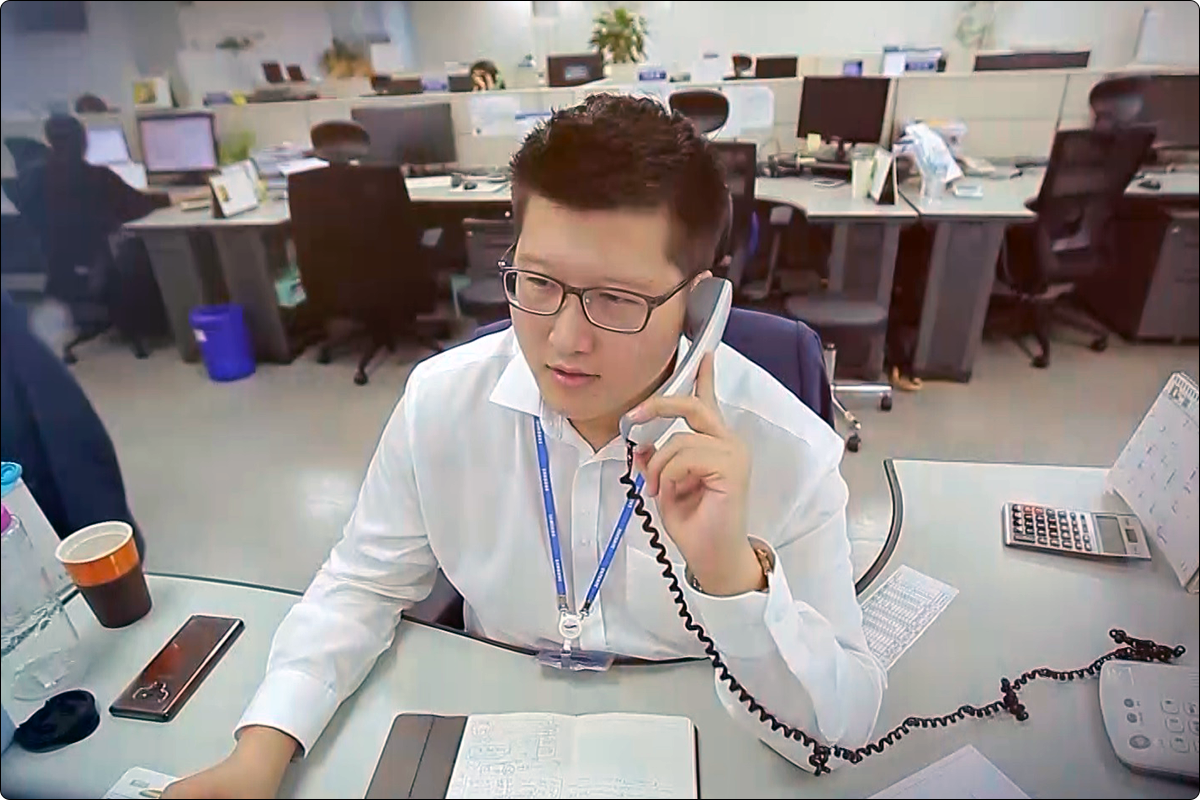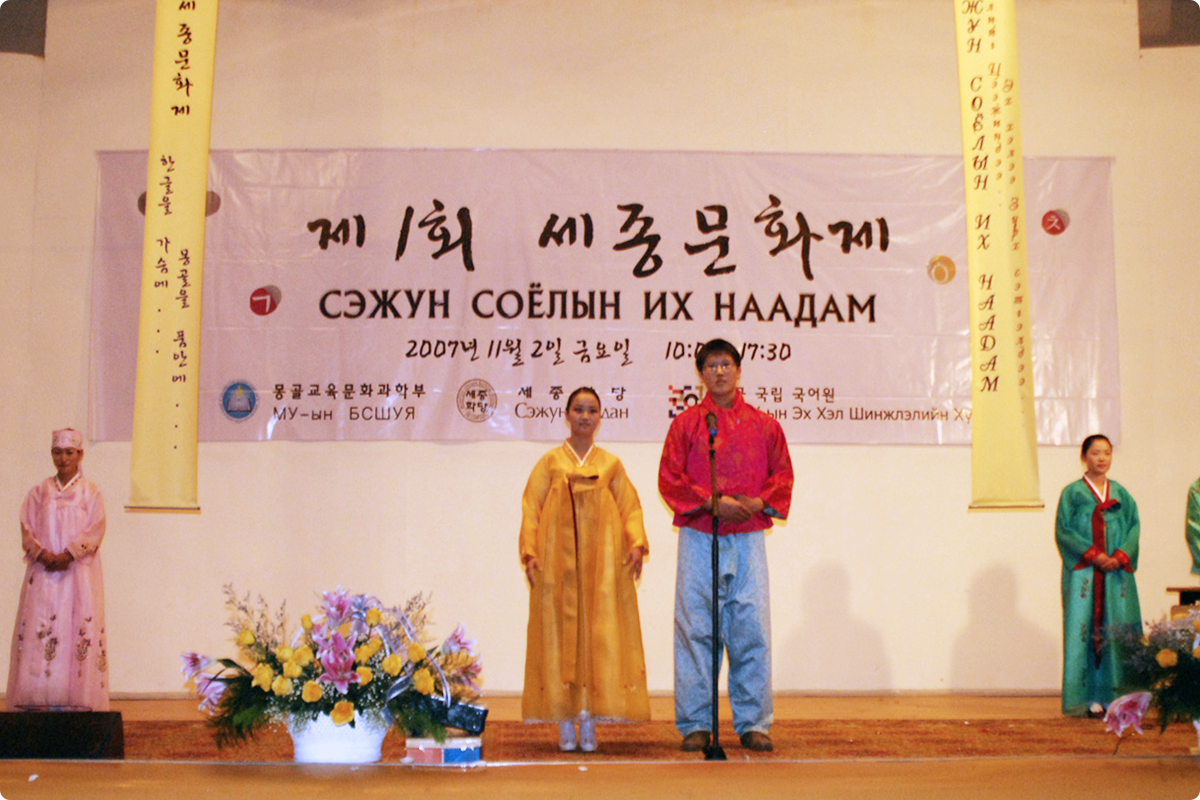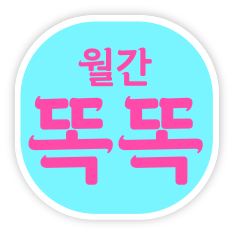Writer홍보협력팀
Tag
2023-04-26
View647
KSI People we met in March

Hasha Baatarkhuu Pro started learning Korean at the King Sejong Institute due to her love for Korea. After one or two years of study, she traveled to Korea for further education and ultimately landed a position at a major Korean company. Hasha Baatarkhuu, a non-ferrous commodities trader at Samsung C&T, shares her journey to joining the Korean company.
Hello, Ms. Hasha Baatarkhuu Pro. Could you please give us a brief introduction about yourself and your current position at Samsung C&T?
Hi, I'm Hasha Baatarkhuu from Mongolia. Feel free to call me Hasha. I oversee non-ferrous commodity trading at Samsung C&T. This involves mining essential industrial raw materials like copper and silver, and supplying them to smelters and processors. I also manage the movement of these materials between producers and consumers in Mongolia, providing value to our clients through services such as logistics, finance, marketing, and quality control.
What motivated you to learn Korean? Also, share your experience studying at Ulaanbaatar 1 Sejong Institute and why you chose to work for a Korean company.
I was among the first students to join the KSI Ulaanbaatar 1 in 2007. My aspiration to study in Korea led me to the Sejong Institute. At KSI Ulaanbaatar 1, I was inspired by Mr. Son Yun-sun, an educational advisor to the Mongolian Ministry of Education, Culture and Science at the time, and the passionate teachers at the academy, which made me more determined to study in Korea.
During my studies in Korea, I recognized that my work experience in the country would be a crucial foundation for my future career. Moreover, participating in the HKUST International Case Competition in Hong Kong during my third year of the university gave me confidence in my ability to succeed in Korea. The competition featured universities from 16 countries, and I was part of a four-member team representing Korea. This experience demonstrated that, despite being a foreigner, I could collaborate effectively with Koreans toward a common goal.

I'm interested in your journey to joining Samsung C&T. What did you focus on while studying Korean for that purpose? Were there any challenges in learning Korean for job preparation compared to simply studying the language? Do you have any personal tips?
I preferred the so-called classical method. When I began learning Korean, I emphasized mastering the content by reviewing textbooks hundreds of times at home. After around a year of consistent study, I reached approximately level 4 on the Test of Proficiency in Korean (TOPIK). From that point, I socialized with many people and engaged in numerous conversations about current topics in Korean society. I also continued to expand my knowledge through news and reading. Eventually, I transformed from a “foreign student” into a “Korean university student” who deeply understood Korean society. I believe that if you can communicate freely with Koreans about any societal topic, you are ready to work in Korea. From there, you need to focus on job preparation like any other Korean college student nearing graduation. This entails preparing for various aspects, such as job applications, self-introductions, and analyzing test and interview selections.
What was the most challenging aspect of working at a Korean company in terms of practicalities? (Food, socializing, communication, and so on) And how did you overcome those challenges?
Having lived in Korea for six years (undergraduate and master's), I didn't have issues with food, culture, or communication. However, there were many new things to learn in my professional life, and I faced some difficulties. The key to overcoming or reducing these challenges was maintaining a positive mindset. Being positive means not only looking for the bright side but also listening to advice and assessing the situation objectively to determine if the difficulties were unique to me or shared by other new employees. I think the struggles you face in your first year will seem less daunting as you progress in your career. When confronted with difficulties, try your best and excel, but don't stress too much about them.
What advice would you give to other KSI students who want to work in Korean companies?
I'd like to congratulate and offer my support to those who have chosen to study in Korea and learn the Korean language at King Sejong Institute. Korea is among the world's top ten economies, excelling in trade and IT technology. More significantly, Korea's unique philosophy of "Humanitarianism," which emphasizes "coexisting and bringing happiness to people worldwide," is proving to be extremely influential. Examples of Korea's growing global influence include BTS, the movie "Parasite," the drama "Squid Game," and the recent hit "The Physical 100.” Many Koreans are striving to be the best in their fields and bring happiness to people worldwide. We eagerly await more talented individuals like you, our juniors, to join them on the global stage. All you need to do is work hard and perform well, as you have been doing. If you never lose sight of your desire to bring joy to people around the world, good things will come your way. I will always support you, my juniors. Go for it!

Knock, knock!
Let me tell you the story of King Sejong Institute!